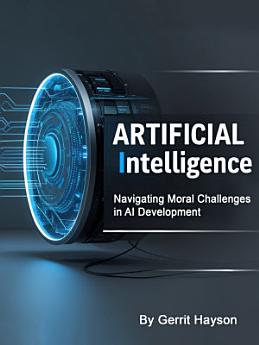Artificial Intelligence: Navigating Moral Challenges in AI Development
About this ebook
The development of artificial intelligence represents perhaps the most significant technological advancement since the invention of the printing press or the discovery of electricity. Unlike previous innovations, however, AI systems possess an unprecedented capacity to make autonomous decisions that directly affect human lives. From healthcare diagnostics to criminal justice algorithms, from autonomous vehicles to financial trading systems, artificial intelligence is increasingly entrusted with choices that were once the exclusive domain of human judgment.
This extraordinary capability brings with it an equally extraordinary responsibility. The engineers, researchers, and corporate leaders driving AI development are not merely creating tools; they are architecting the moral framework within which these systems will operate. Every dataset used to train an algorithm contains implicit biases and assumptions about the world. Every objective function optimized by a machine learning model embeds particular values about what outcomes are desirable. Every deployment decision reflects judgments about acceptable risks and trade-offs.







